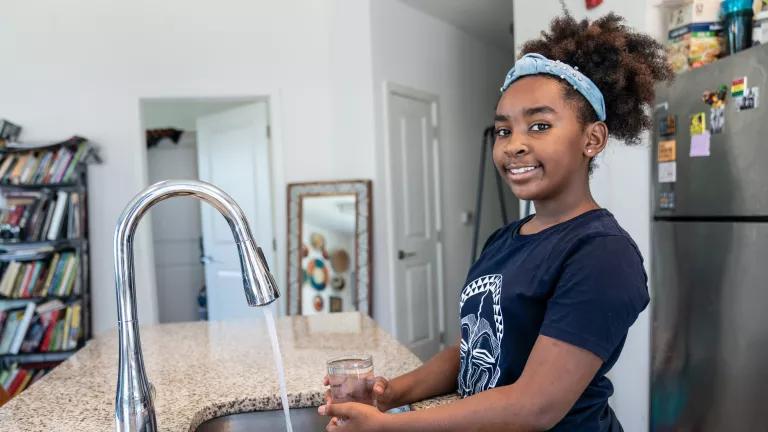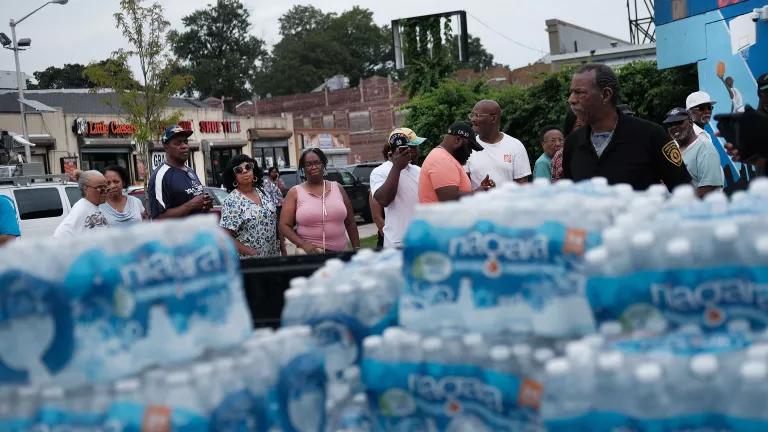For the past two years, Flint residents have been contending with contaminated drinking water when the state-appointed emergency manager made the decision to switch Flint’s water source to the Flint River without treating or testing the water. Recent studies have shown that Flint homes are still considered at risk of lead exposure and that residents should be using bottled or filtered water for cooking and drinking.
It’s hard to believe, but—despite the intense national and international scrutiny—Flint residents today are still not able to access safe drinking water.
We’ve all seen the heartbreaking pictures of school children on the roadside carrying cases of bottled waters on their heads. Sadly, these pictures depict the reality faced by many residents in Flint, even today. On a daily basis, residents must ensure that, by all means necessary, their homes are stocked with sufficient bottled water to meet their household’s daily needs, like cooking, drinking and brushing teeth.
To provide access, the government has set up stations throughout the city where people can pick up free bottled water and filters. The city has also set up a “211” hotline where people can call for assistance. And yet, for certain people, including those who are homebound—such as those who are disabled or who lack transportation – accessing these government services has been difficult. In fact, to fill the gaps in these inadequate government services, community activists, volunteers and nonprofits, including those like Flint Rising and Crossing Water, have been going door-to-door to meet the needs of community.
The long term fix to the problem must be resolved. But in the meantime, the logistics of ensuring everyone has safe water today must also be adequately addressed. And that responsibility should not rest on the shoulders of private citizens.
That is why NRDC filed a motion for preliminary injunction last month, seeking an order from the court requiring that a robust water delivery system is in place for the residents of Flint. This motion was filed as part of the lawsuit we, along with ACLU of Michigan, filed in January on behalf of Concerned Pastors for Social Action and resident Melissa Mays, against Michigan officials and the City of Flint under the federal Safe Drinking Water Act. The underlying case seeks to ensure that officials comply with the requirements that the water is treated and tested properly.
The real solution, which our lawsuit calls for, is a replacement of all the lead service lines in Flint. But until that long-term solution is resolved, which may take years, state officials and the City of Flint must figure out a meaningful short-term solution to this on-going crisis, including a robust home delivery service of bottled water. The government is failing to meet the needs of its residents for the problem the government caused. That’s why we’re seeking court intervention.




